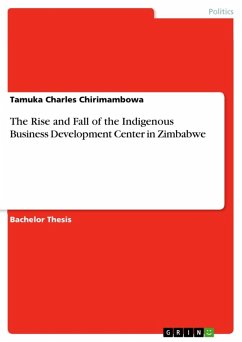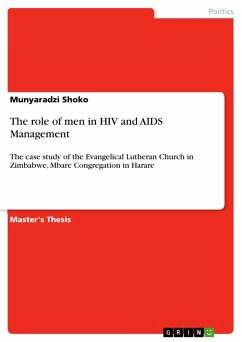Bachelor Thesis from the year 2007 in the subject Politics - Region: Africa, grade: "70", University of KwaZulu-Natal, language: English, abstract: Economic reform has become one of the major necessities of post-colonial African states, given years of slavery, apartheid, colonialism and underdevelopment. Many scholars have argued that Africa's lack of development is due to the lack of African participation within the economic sphere, especially as a business class or 'bourgeoisie'. They contend that African participation in business has been rare, and where granted it has been mostly within the peripheries or petty commerce. This study will investigate Zimbabwe's IBDC with a view to going some way to answering the major question that arises out of this argument: is creating a nationalist indigenous entrepreneurial class the answer to Africa's development problems? The focus of this study will be on the emergence of the IBDC as a vehicle for black empowerment. It will attempt to account for its successes, its failures, and its ultimate demise. The research will also chart how some of Zimbabwe's most successful black entrepreneurs, some who have managed to establish a global presence, got their start with this organization, and how they proceeded when the IBDC ceased to exist.The study will also proceed to examine the Indigenous Business Women's Organization and the Affirmative Action Group, similar organisations that came after the IBDC. Crucial within this research agenda is the interrogation of the role of the state in post colonial Africa: can it be a catalyst for economic empowerment, or is it an inhibitor? Finally, efforts will be made to investigate the complementarities and contradictions of efforts to create a black business class with poverty alleviation policies.
Dieser Download kann aus rechtlichen Gründen nur mit Rechnungsadresse in A, B, BG, CY, CZ, D, DK, EW, E, FIN, F, GR, HR, H, IRL, I, LT, L, LR, M, NL, PL, P, R, S, SLO, SK ausgeliefert werden.









